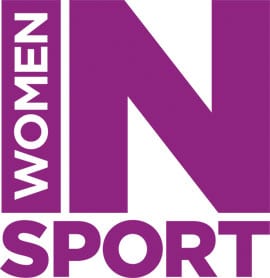A lot has been said about women playing sport but this post looks at women working in sport, specifically women in decision-making positions.
The benefits of having women on company boards have been well documented: it’s frequently said that the financial crash wouldn’t have happened if more women were in decision-making positions. As well as providing a different perspective, women are typically more risk-averse and, according to a study from The World Bank, they are more honest, trustworthy and public-spirited than men.
It got me thinking about the role of women in sporting organisations. Let’s look at FIFA for instance. There are three women on FIFA’s executive committee, compared to 23 men (13% are female) and just two of the 209 member association presidents are women. Would Sepp Blatter have been allowed to continue in his merry way if there had been more women on the ExCo?
What about the IOC? There are 24 female members out of a total of 106 – a total of 23%. Still not great but kudos to the IOC for taking steps to address this – not only have they set their National Olympic Committees and International Federations the objective of filling at least 20% of decision-making positions with women, they also host a women in sport conference every four years where the objective is to ‘define a plan of action to improve and increase the participation of women in sport’.
Moving away from mainstream sport, let’s now look at the Cambridge v Oxford Boat Race. In 2011, Newton Investment Management was the first ever sponsor of the women’s boat race.
In 2012, Newton’s parent company, BNY Mellon took over sponsorship of the men’s race but with a mandate for gender equality. It took a few more years but finally in 2015, the women’s race took place on the same day on the same course as the men’s race for the first time ever. I believe this is in some way thanks to the fact that Newton’s CEO is a woman and someone who set up the 30% Club, a cross-business initiative aimed at achieving 30% women on UK corporate boards. As she has been quoted as saying: “Newton had to create a new market” when it came to sponsoring the women’s race and it’s thanks to them – and probably more specifically Helena – that funding is split equally between the men and women.
More recently, in the past week, a representative from Scottish Women’s Football was reported as saying they have turned down sponsorship money from companies in the alcohol and gambling industries.
Their Head of Communications said: “We have had approaches from companies in both sectors. They asked if we wanted to speak to them about sponsorship. We said no because we want women’s football to be a clean sport, and one which helps to educate young girls. There are huge problems, in the west of Scotland especially, with gambling and alcoholism. I think it would be absolutely crazy to allow little girls and women to be running around in strips endorsing these sectors.”
Wow. My immediate thought was how on earth do they plan to make any money, succeed as a business and compete with other rights-holders when there are plenty of people out there who will take money from both gambling and alcohol companies.
Then I thought again. Wow. What an amazing stance to take. What a responsible organisation. Imagine – principles in the world of sport.
I don’t know if the Scottish Women’s Football’s decision is down to it being about a female sport or if there are more females working in women’s football than in men’s football which led to this decision or even if it’s just a way to get some media coverage.
However I do know that we need trail blazers in every organisation, in every industry, in every sport. Isn’t it nice for some of those people to be women, to give young women someone to look up to and to help traditionally male organisations take a different perspective and reach a wider audience. Who knows, maybe more women on the Board could even help the recently battered sports such as football, athletics and cycling rise to the top again?


















